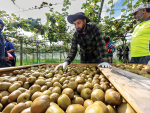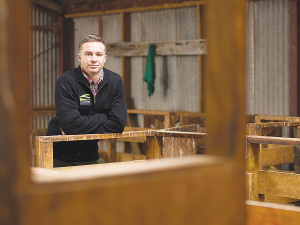"We're different industries, but we're still people. One looks after animals, one looks after plants – but we're people, we have passion, we have drive, we earn our income and live our lifestyles this way," says Ian Greaves, kiwifruit industry representative.
The kiwifruit vine disease Psa devastated all Gold kiwifruit orchards in Bay of Plenty and it affected Green; many growers are only now getting their first or second crop since the disease struck.
But like all industries facing adversity, the focus quickly shifted from practical aspects (managing the orchards and plants) to looking out for the people involved.
"We became aware that this disease was taking hold and we needed to look after the people; because either we'd find solutions to Psa but all the people had left, or the disease would wipe out the industry and leave the people," says Greaves.
He says the current reduced milk price is an adversity which could have a similar impact on dairy farmers.
Greaves and Zespri's chief operating officer Simon Limmer are among the speakers who will address dairy farmers at the DairyNZ Farmers' Forum, May 17-18, at Mystery Creek Events Centre, near Hamilton. About 700 farmers are expected to attend.
But though Psa hit the pockets of 2000 kiwifruit growers – slashing incomes and knocking about 75% off land values – the sector is bouncing back.
"Now the industry is buoyant, land prices are higher than before and we have a new Gold cultivar which is tolerant of Psa, with management. The world markets have invigorated too: people are queuing up for New Zealand kiwifruit," says Greaves. "We're in a sweet spot right now. But many of the people have been quite battered; it's still quite close to the surface."
Which is why Greaves and Limmer are spreading the message that industries facing adversity must look after their people.



















